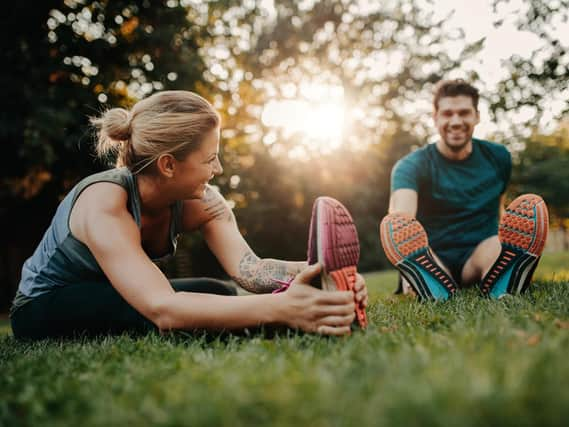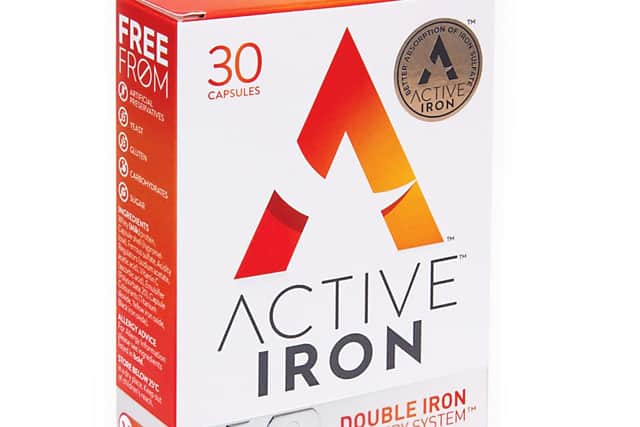Why an iron boost may kick-start your exercise regime


Studies have shown that women with low iron levels find exercising more difficult than those with adequate levels. Increased difficulty in sustaining exercise and adapting to training are just two of the challenges women with low iron levels face.
In anaemic individuals, iron deficiency often not only decreases athletic performance but also impairs immune function and leads to other physiologic dysfunction.
A Cornell University study found that iron-deficient women can improve their exercise endurance by taking iron supplements.


Jere Haas, Professor of Maternal and Child Nutrition and Director of the Division of Nutritional Sciences at Cornell University in New York, spoke to Medscape about the study. “Millions of women are working harder than they need in order to exercise or physically work, and they can’t reap the benefits of endurance training as easily. As a result, exercise is more difficult so these women are more apt to lose their motivation to exercise,” he said.
Professor Haas had completed a previous study in 1998 that found iron-depletion in non-anaemic women results in lower capacity for physical work and impaired exercise performance. His new study shows that iron deficiency impairs the ability to increase aerobic endurance after a period of exercise training.
“In other words, we now know that iron-deficient women don’t benefit from training as much as women with higher iron status because of impaired metabolic responses to exercise, but that iron supplementation can compensate,” he said.
Furthermore, not only may women with low iron levels find exercise more difficult, but iron deficiency can also be caused by intensive exercise. In a case study published by The British Journal of General Practice, three young female adults developed iron deficiency anaemia (IDA) induced by intensive physical training.
The study describes intensive physical training as the “forgotten cause” of anaemia. While iron deficiency is common in athletes involved in endurance sports, female marathon runners are among the worst hit – the prevalence is as high as 28%.
The case study concluded that exercise-induced anaemia must be considered in young female adults with unexplained IDA.
Several mechanisms are thought to cause iron loss during exercise:
exercise-induced haemolysis;
blood loss in the gastrointestinal and urinary tract, due to microscopic
lesions by the reduced visceral circulation during exercise; and
sequestration of iron in macrophages and decreased iron absorption, due to increased hepcidin production by the induction of an inflammatory response. Increased pro-inflammatory markers, occult blood loss in urine and faeces, and a decreased haptoglobin level are observed in patients within 24 hours of intensive training. Iron loss due to excessive sweating has also been proposed as an underlying mechanism. Although high levels of iron have been measured in sweat, this iron is probably derived from or contaminated by cellular debris.
Over 2 billion people worldwide have an iron deficiency and most products on the market have poor absorption rates. Iron that isn’t absorbed causes problems such as nausea, diarrhoea, and constipation.
Active Iron is the first commercially available denatured whey protein (WP) Iron formulation. Clinical evaluation of this formulation shows significantly higher absorption of iron than the gold standard, ferrous sulfate.
Active Iron targets the natural site of iron absorption in the intestine, increasing the amount of iron absorbed and making more iron available to your body. Active Iron’s advanced protein formulation is non-irritating to the stomach and does not cause inflammation preventing unwanted side-effects such as stomach pain, cramps, sickness, constipation and flatulence.
Active Iron works in tune with your body, targeting the natural site of absorption and delivering just the right amount of iron, without any of the nasty side effects.
Kind and strong, Active Iron is gentle enough to take on an empty stomach, and gives you strong absorption when you need it.
Iron contributes to the reduction of tiredness and fatigue and also plays an important role in normal energy metabolism, oxygen transport, cognitive function, immune function and formation of red blood cells and haemoglobin.
However, food supplements are not a substitute for a varied diet and a healthy lifestyle. You should not exceed the recommended daily supplement dose of iron without consulting your doctor or pharmacist.